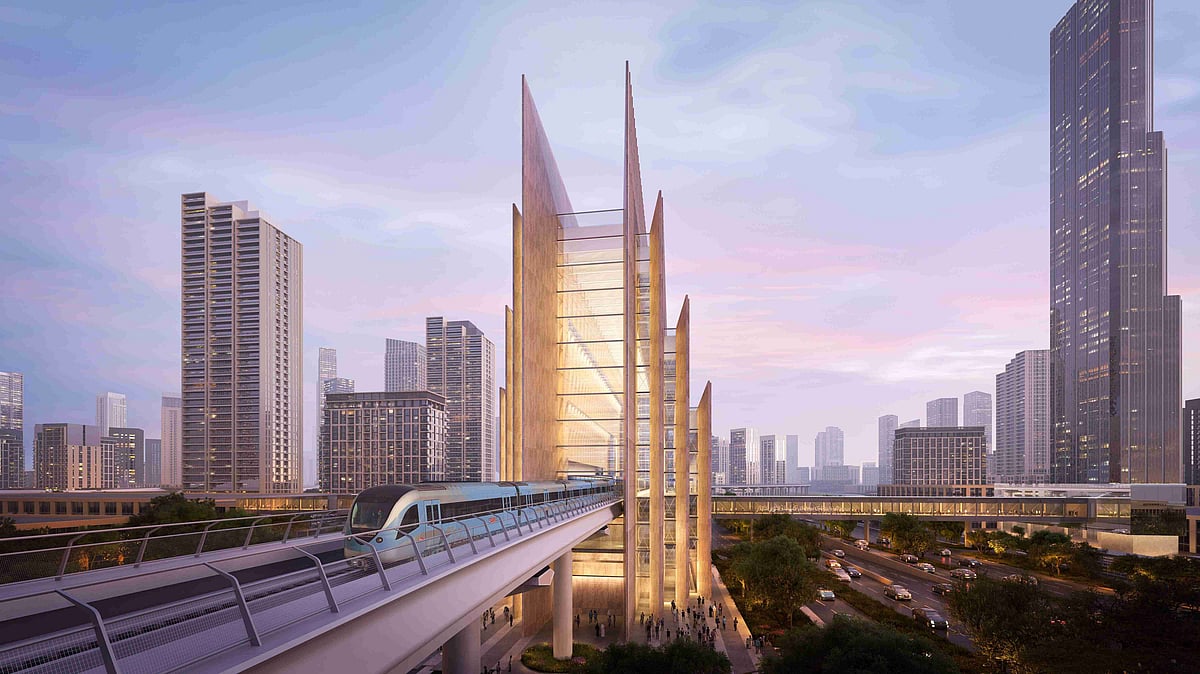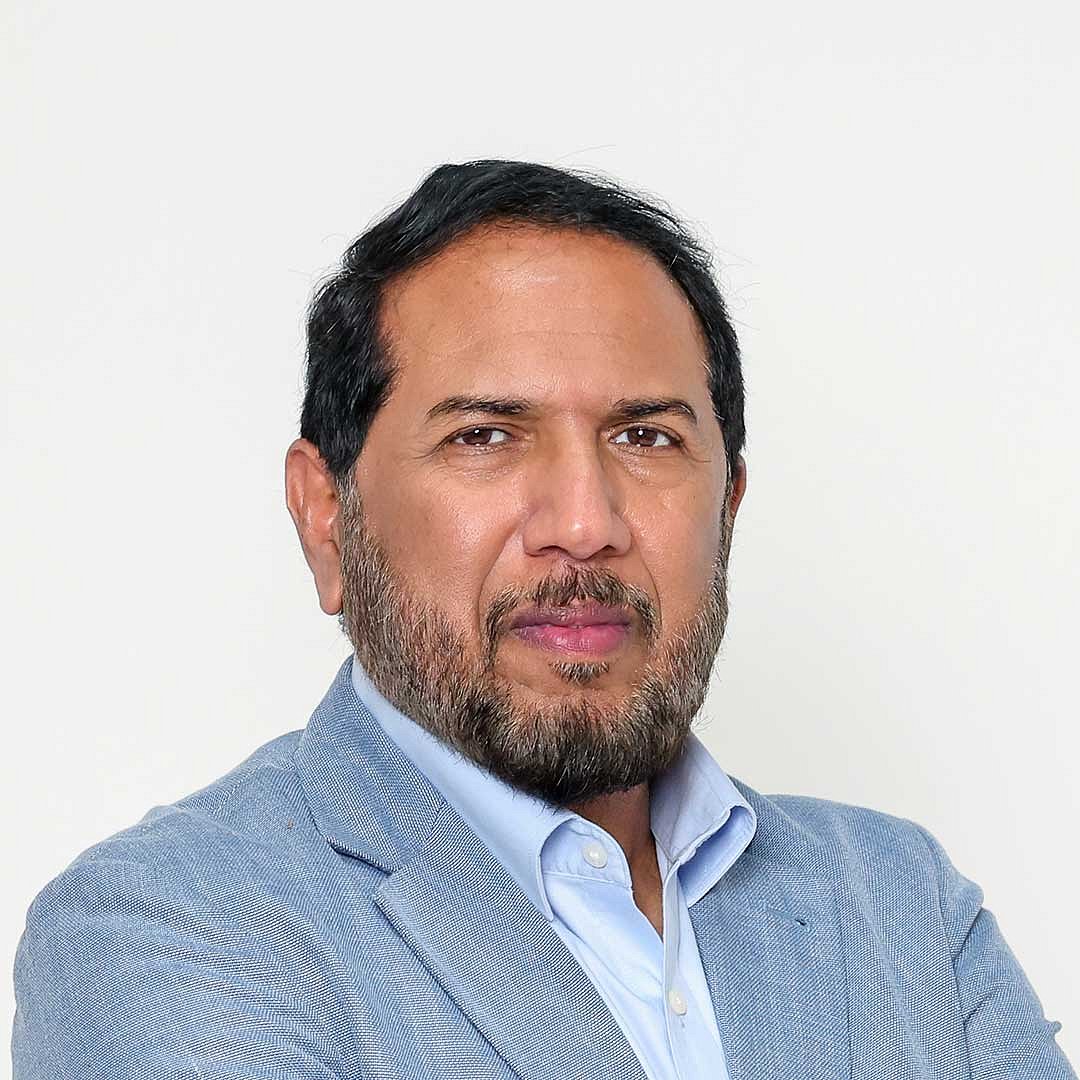RTA turns 20: Dh175 billion to ease traffic congestion and mobility in Dubai
Dubai’s RTA has spent two decades shaping the city’s future and enhancing quality of life

Dubai’s Roads and Transport Authority (RTA) celebrated its 20th anniversary, reflecting on two decades of transformative achievements that have reshaped the emirate’s urban mobility, boosted the economy, and positioned Dubai as a global hub for smart and sustainable transport.
Mattar Al Tayer, Director General and Chairman of the Board of Executive Directors of RTA, highlighted the role of visionary leadership in guiding these successes. “Under the guidance and support of our wise leadership, we have built an integrated infrastructure of road networks and public transport systems that has strengthened Dubai’s global competitiveness and enhanced quality of life across the emirate,” he said.
Major projects
Over the past 20 years, RTA has invested Dh175 billion in developing Dubai’s infrastructure, including roads, metro lines, trams, cycling tracks, and pedestrian pathways. Its world-class road network spans more than 25,000 lane-kilometres, supporting 3.5 million vehicles daily, while the Dubai Metro and Tram together cover more than 100 kilometres. Pedestrian bridges and tunnels have increased from 26 in 2006 to 177 by 2024, improving accessibility and safety for residents.
RTA’s public transport systems have seen ridership grow from 220 million passengers in 2006 to over 747 million in 2024, with public transport now accounting for 21.6% of daily movements, compared to just 6% in 2006. “The development of public transport is founded on integration, ensuring smooth and seamless mobility across Dubai,” Al Tayer noted.
Investing in people
RTA has placed human capital at the heart of its strategy, employing more than 400 Emirati engineers and specialists in technical fields such as smart traffic systems, artificial intelligence, data science, and autonomous transport. Al Tayer emphasised, “Investing in people forms the cornerstone of sustainable development. We have launched programmes to prepare young national leaders, enhancing their foresight and innovation capabilities to lead the next phase of RTA’s journey.”
Training initiatives extend globally, sending young Emiratis abroad for specialised education in areas including train operations, bus fleets, autonomous systems, and smart infrastructure. These efforts ensure that Dubai continues to have a pipeline of talent capable of sustaining its competitive edge in urban mobility.
Economic and social impact
RTA’s achievements have not only enhanced mobility but also contributed significantly to Dubai’s economy. According to a study by McKinsey & Company, RTA’s projects over 20 years generated Dh150 billion in revenues, reduced fuel and time costs by Dh319 billion, and contributed Dh156 billion to Dubai’s GDP. Property values near major infrastructure projects rose between 6% and 16%, underlining the transformative impact of transport on urban development.
Al Tayer noted the broader economic value of RTA’s enterprises: “Four commercial companies established by RTA — Salik, Parkin, Dubai Taxi, and Mada Media — now have a combined market value exceeding Dh80 billion. These companies stand as models for turning government assets into sustainable economic enterprises.”
RTA also oversees and regulates more than 16,000 licensed commercial transport companies, contributing to a thriving logistics and transport ecosystem. Foreign direct investment in Dubai’s transport sector over the past 20 years reached AED 32.4 billion, while start-ups leveraging RTA’s infrastructure have reached a combined market value of Dh22 billion, including companies such as Careem, Yango, and iMile.
Safety and quality of life
RTA has played a crucial role in improving road safety and environmental outcomes. Traffic-related fatalities have dropped by 97% between 2007 and 2024, while over 9.5 million tonnes of CO₂ emissions have been avoided due to increased metro and bus usage, reduced congestion, and shorter travel times. “Every minute saved, every accident prevented, and every tonne of emissions reduced has enhanced people’s quality of life, making Dubai one of the most comfortable and liveable cities in the world,” the study concluded.
Travel efficiency has also improved significantly. Dubai’s Travel Time Index (TTI) decreased from 1.28 in 2014 to 1.23 in 2024, outperforming major global cities such as Sydney, Berlin, and Milan. The city now averages 13.7 minutes per 10km, compared to 15.9 minutes in benchmark cities.
Innovation and future vision
Looking ahead, RTA plans to focus on five strategic pillars: investing in infrastructure with AI integration, adopting sustainable and autonomous transport solutions, developing business models to foster start-ups, attracting future talent, and strengthening partnerships with local and global private sector entities. Key upcoming projects include the Dubai Metro Blue Line, aerial taxis, autonomous taxis, the “Dubai Walk” initiative, and high-frequency bus routes.
“RTA’s journey demonstrates how infrastructure investments can be transformed into economic growth, innovation, and improved quality of life,” Al Tayer said. “We continue to prepare for new milestones that will further strengthen Dubai’s position as the city of the future.”
The 20th-anniversary celebrations at Jumeirah Beach Hotel honoured founding employees, distinguished staff, and strategic partners, while unveiling commemorative nol cards and coins — symbols of RTA’s enduring impact on Dubai’s skyline, economy, and daily life.
Key Achievements and Investments
Total infrastructure investment: AED 175 billion in roads, metro, tram, cycling tracks, pedestrian bridges, and smart traffic systems.
Economic impact: AED 156 billion contributed to Dubai’s GDP; AED 150 billion in cumulative revenues from RTA companies; property values increased 6—16% in connected areas.
Public transport expansion: Metro and Tram networks covering over 100km; bus fleet of 1,300+ vehicles; over 747 million passengers in 2024.
Road network: 25,000+ lane-km of roads, 1,050 vehicle bridges/tunnels, and 177 pedestrian bridges/tunnels.
Sustainability: Over 9.5 million tonnes of CO₂ emissions avoided; Traffic fatalities reduced by 97% from 2007 to 2024.
Human capital: 400+ Emirati engineers and specialists; national leadership and training programs preparing the next generation.
Smart Mobility: 130+ digital services, autonomous taxi trials, aerial taxi planning, on-demand car and bus services.
Commercial impact: 16,000+ licensed transport companies; foreign direct investment of Dh 32.4 billion; RTA spin-off companies (Salik, Dubai Taxi, Parkin, Mada Media) with combined market value over Dh80 billion.
Major Projects
Dubai Metro Red & Green Lines: First metro network; extended to Expo 2020 via Route 2020 project.
Dubai Tram: Integrated with metro and road networks.
Road network expansion: 25,000 lane-km, bridges, tunnels, and cycling paths.
Pedestrian & cycling initiatives: 560km cycling tracks; Dubai Walk initiative.
Smart traffic & AI systems: Real-time monitoring, autonomous transport integration.
Future mobility projects: Blue Line Metro extension (30km), aerial taxis, autonomous taxis, Railbus, trackless trams, BRT networks.
Infrastructure for major events: Expo 2020 and COP28, including dedicated transport networks.
Sign up for the Daily Briefing
Get the latest news and updates straight to your inbox
Network Links
GN StoreDownload our app
© Al Nisr Publishing LLC 2026. All rights reserved.
